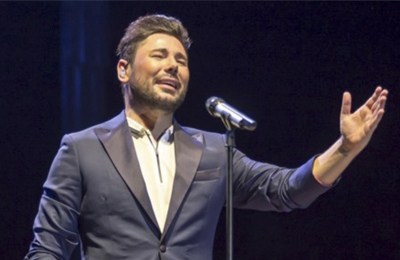flamenco
Miguel Poveda, flamenco singer at Tablao Flamenco Cordobes in Barcelona
Miguel Poveda León came to this world in Barcelona in February 13th 1973. He lived and grew up in Badalona and he was raised into a humble family without flamenco Barcelona tradition, they were enthusiastic of it though.

Miguel Poveda León came to this world in Barcelona in February 13th 1973. He lived and grew up in Badalona and he was raised into a humble family without flamenco Barcelona tradition, they were enthusiastic of it though. His father was from Murcia and his mother from Puertollano (Ciudad Real). His origins aren’t from Andalusia and this fact will have special importance in the future, due to the discipline he will choose to dedicate his life to. flamenco Barcelona.
Miguel grew up in a non-favourable environment for his development into the flamenco Barcelona world. He was non-gypsy, Catalan and lived in Badalona, a Catalan city. He was raised in a place where it was difficult to share his liking for flamenco Barcelona with the rest of boys of his age. Miguel Poveda was a shy boy who used to turn on the radio to listen flamenco, he also spent the afternoons in his room, listening his mother’s flamenco albums. With time, that room became his own musical universe. The coplas of Quintero, León and Quiroga, and all the old flamenco Barcelona masters Antonio Mairena, Manolo Caracol, Tomás Pavón, La Perla, La Paquera de Jerez, La Niña de los Peines, Juan Varea, Rafael Farina and also the ones more contemporary like Camarón de la Isla, Enrique Morente Chano Lobat sounded in his room. Little by little, all of them started to shape Miguel’s rising spirit of singer.
During that time, flamenco became an inseparable partner of his childhood. Misunderstood by his friends in his love for flamenco, Miguel filled the hours of his privacy with a knowledge basis of flamenco Barcelona which gave him the necessary tools to, in a self-taugh way, be able to grow up as an artist.
His enthusiasm for singing brought him to record some home-made coplas and cantes that he listened in the radio program La Radio de su madre. Those were times that he still remember with love and he paid tribute to them in his album Tierra de Calma.
Shorty after he was 15, in 1988, Miguel stepped onto the stage for first time, it was in the Peña Flamenca Sra. De la Esperanza, in Badalona. Miguel loved that sensation so much that, from then on, he spent every weekend singing in diferent peñas and in amateur contests where he was always de youngest one. Miguel felt that he was born for singing and he wanted to dedicate his entire life to the music.
But the beginings can be dificult and, even more, if your family is humble and doesn’t have any flamenco Barcelona tradition. Miguel started to work in several non-vocational jobs in order to put some food on the table. However, when he came back from his military service, he started to sing at Tablao Cordobes Flamenco Barcelona, in Las Ramblas of Barcelona. He worked there almost for a year and it was there where he learned his profession. He sang with the best artists and learned how to sing for the dancers. These days, when Miguel remembers Tablao Cordobes Flamenco Barcelona he does it with affection and admiration because it is an institution that, since its foundation, has always defended the high quality flamenco and the young promises.
Some time later, Miguel Poveda crossed the Catalan borders and he travelled to Murcia to compete in the Festival Nacional del Cante de las Minas de La Unión. He wasn’t only selected but he also won 3 of the 4 major prizes, including the most important one La Lámpara Minera. This fact allowed him to professionalize his art and his talent, accomplishing this way one of his objectives.
Even though he obtained a so important award, the flamenco Barcelona world didn’t make it easy for him. His Catalan origin and the fact that he doesn’t have parents from Andalusia harmed him during the first steps of his career. However, the talent and the dedication of our singer were too big to be ignored and, in 1995 he eventually recorded his first flamenco album Viento del Este, accompanied by Moraíto, Pepe Habichuela and Julián “El Califa”. He also had the collaboration of José Soto “Sorderita” and the album was published by Nuevos Medios.
Miguel Poveda has participated in many of the most important music festivals of the world and he has sung in theatres like Odeón de París, Liceo of Barcelona, Teatro Real of Madrid, Carnegie Hall and Lincoln Center of New York, Wiener Koncerthaus of Viena, Teatro Colón of Buenos Aires, Auditorium Parco della Musica de Roma, Sadler’s Wells of London and Maestranza of Sevilla.
During his career, Miguel has collaborated wit artists like Enrique Morente, Carmen Linares, Paco de Lucía, Manolo Sanlúcar, Joan Manuel Serrat, Santiago Auserón, Israel Galván, Eva Yerbabuena, Manuela Carrasco, Raphael, Isabel Pantoja, Martirio, Rodolfo Mederos, Tomatito, Antonio Carmona, Pasión Vega, Matilde Coral, Giovanni Hidalgo, Maria del Mar Bonet, Mariza, Pedro Guerra, Alberto Iglesias, Chavela Vargas, Manuel Carrasco, Josemi Carmona, María Dolores Pradera and Alejandro Sanz, among many others.
Sevilla adores him and named him adopted son, La Unión, in Murcia, inaugurated a street with his name on it.
He has won so many prizes that we wouldn’t be able to include them all here, but we have to mention some of them due to their major importance: Premio Nacional de Música 2007, Premio Nacional de Cultura 2011 de Cataluña, Premio de la Cátedra de Flamencología de Jerez, Medalla a la solidaridad por su concierto a Beneficio de la Fundación Andex and la Medalla de Andalucía 2012.
Miguel grew up in a non-favourable environment for his development into the flamenco Barcelona world. He was non-gypsy, Catalan and lived in Badalona, a Catalan city. He was raised in a place where it was difficult to share his liking for flamenco Barcelona with the rest of boys of his age. Miguel Poveda was a shy boy who used to turn on the radio to listen flamenco, he also spent the afternoons in his room, listening his mother’s flamenco albums. With time, that room became his own musical universe. The coplas of Quintero, León and Quiroga, and all the old flamenco Barcelona masters Antonio Mairena, Manolo Caracol, Tomás Pavón, La Perla, La Paquera de Jerez, La Niña de los Peines, Juan Varea, Rafael Farina and also the ones more contemporary like Camarón de la Isla, Enrique Morente Chano Lobat sounded in his room. Little by little, all of them started to shape Miguel’s rising spirit of singer.
During that time, flamenco became an inseparable partner of his childhood. Misunderstood by his friends in his love for flamenco, Miguel filled the hours of his privacy with a knowledge basis of flamenco Barcelona which gave him the necessary tools to, in a self-taugh way, be able to grow up as an artist.
His enthusiasm for singing brought him to record some home-made coplas and cantes that he listened in the radio program La Radio de su madre. Those were times that he still remember with love and he paid tribute to them in his album Tierra de Calma.
Shorty after he was 15, in 1988, Miguel stepped onto the stage for first time, it was in the Peña Flamenca Sra. De la Esperanza, in Badalona. Miguel loved that sensation so much that, from then on, he spent every weekend singing in diferent peñas and in amateur contests where he was always de youngest one. Miguel felt that he was born for singing and he wanted to dedicate his entire life to the music.
But the beginings can be dificult and, even more, if your family is humble and doesn’t have any flamenco Barcelona tradition. Miguel started to work in several non-vocational jobs in order to put some food on the table. However, when he came back from his military service, he started to sing at Tablao Cordobes Flamenco Barcelona, in Las Ramblas of Barcelona. He worked there almost for a year and it was there where he learned his profession. He sang with the best artists and learned how to sing for the dancers. These days, when Miguel remembers Tablao Cordobes Flamenco Barcelona he does it with affection and admiration because it is an institution that, since its foundation, has always defended the high quality flamenco and the young promises.
Some time later, Miguel Poveda crossed the Catalan borders and he travelled to Murcia to compete in the Festival Nacional del Cante de las Minas de La Unión. He wasn’t only selected but he also won 3 of the 4 major prizes, including the most important one La Lámpara Minera. This fact allowed him to professionalize his art and his talent, accomplishing this way one of his objectives.
Even though he obtained a so important award, the flamenco Barcelona world didn’t make it easy for him. His Catalan origin and the fact that he doesn’t have parents from Andalusia harmed him during the first steps of his career. However, the talent and the dedication of our singer were too big to be ignored and, in 1995 he eventually recorded his first flamenco album Viento del Este, accompanied by Moraíto, Pepe Habichuela and Julián “El Califa”. He also had the collaboration of José Soto “Sorderita” and the album was published by Nuevos Medios.
Miguel Poveda has participated in many of the most important music festivals of the world and he has sung in theatres like Odeón de París, Liceo of Barcelona, Teatro Real of Madrid, Carnegie Hall and Lincoln Center of New York, Wiener Koncerthaus of Viena, Teatro Colón of Buenos Aires, Auditorium Parco della Musica de Roma, Sadler’s Wells of London and Maestranza of Sevilla.
During his career, Miguel has collaborated wit artists like Enrique Morente, Carmen Linares, Paco de Lucía, Manolo Sanlúcar, Joan Manuel Serrat, Santiago Auserón, Israel Galván, Eva Yerbabuena, Manuela Carrasco, Raphael, Isabel Pantoja, Martirio, Rodolfo Mederos, Tomatito, Antonio Carmona, Pasión Vega, Matilde Coral, Giovanni Hidalgo, Maria del Mar Bonet, Mariza, Pedro Guerra, Alberto Iglesias, Chavela Vargas, Manuel Carrasco, Josemi Carmona, María Dolores Pradera and Alejandro Sanz, among many others.
Sevilla adores him and named him adopted son, La Unión, in Murcia, inaugurated a street with his name on it.
He has won so many prizes that we wouldn’t be able to include them all here, but we have to mention some of them due to their major importance: Premio Nacional de Música 2007, Premio Nacional de Cultura 2011 de Cataluña, Premio de la Cátedra de Flamencología de Jerez, Medalla a la solidaridad por su concierto a Beneficio de la Fundación Andex and la Medalla de Andalucía 2012.
